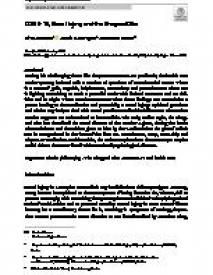COVID-19, Moral Injury and the Bhagvad Gita
During life challenging times like the present COVID-19 pandemic, the health care worker (HCW) is faced with a number of questions of an existential nature. There is a sense of guilt, anguish, helplessness, uncertainty and powerlessness when one is fighting something on such a powerful scale with limited resources and no definite end in sight. There are circumstances when these feelings can overwhelm a person leading to demoralization and potentially a moral injury. Spiritual practices and advice may help to deal with moral paradoxes and ethical dilemmas when other secular supports are undermined or inaccessible.
The Holy Indian Epic, the Bhagvad Gita has described the moral distress of the warrior Arjuna, during the battle of Kurukshetra and the advice given to him by the Lord Krishna the gist of which can be encapsulated in the form of the four Ds- Detachment, Duty, Doer-ship and Dhyana or meditation. In this article, the authors explore how these concepts may be useful aids to the HCW faced with moral and psychological distress.
Geachte bezoeker,
De informatie die u nu opvraagt, kan door psychotraumanet niet aan u worden getoond. Dit kan verschillende redenen hebben,
waarvan (bescherming van het) auteursrecht de meeste voorkomende is. Wanneer het mogelijk is om u door te verwijzen naar de bron
van deze informatie, dan ziet u hier onder een link naar die plek.
Als er geen link staat, kunt u contact opnemen met de bibliotheek,
die u verder op weg kan helpen.
Met vriendelijke groet,
Het psychotraumanet-team.
In: Journal of Religion and Health ; ISSN: 0022-4197 | 60 | 654-662
https://doi.org/10.1007/s10943-021-01210-z


